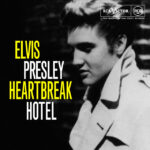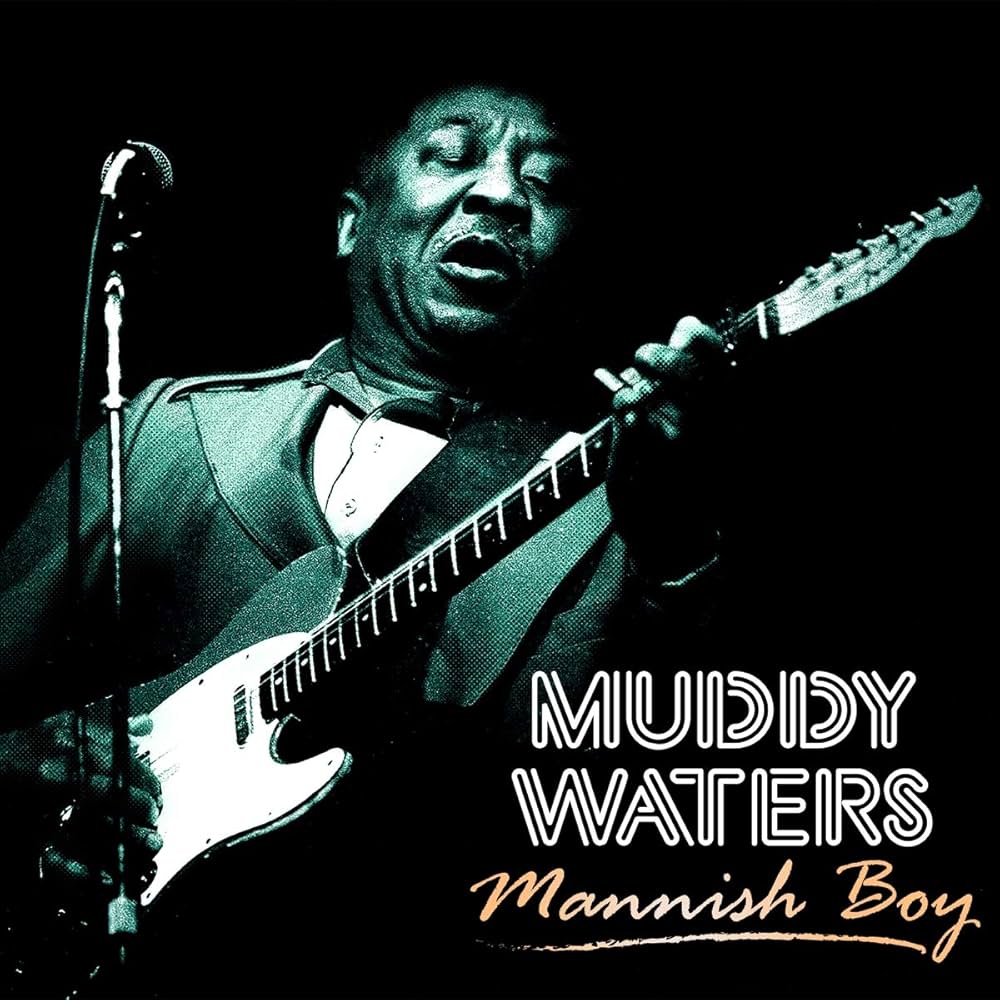 When “Heartbreak Hotel” dropped in 1956, America wasn’t ready for what was coming. Rock and roll had existed in small bursts—rhythm and blues had been pounding on the door for years—but this song kicked that door clean off its hinges. It wasn’t just a hit; it was a cultural explosion that changed the temperature of music itself. Written by Mae Boren Axton and Tommy Durden and brought to life by a 21-year-old Elvis Presley, “Heartbreak Hotel” marked the moment when rock truly stepped out from the underground and into the American living room.
When “Heartbreak Hotel” dropped in 1956, America wasn’t ready for what was coming. Rock and roll had existed in small bursts—rhythm and blues had been pounding on the door for years—but this song kicked that door clean off its hinges. It wasn’t just a hit; it was a cultural explosion that changed the temperature of music itself. Written by Mae Boren Axton and Tommy Durden and brought to life by a 21-year-old Elvis Presley, “Heartbreak Hotel” marked the moment when rock truly stepped out from the underground and into the American living room.
Everything about the track felt new, dangerous, and alive. It’s raw, it’s haunted, and it’s drenched in a kind of loneliness that transcended genre. Elvis, the young truck driver from Tupelo with a gospel heart and a blues snarl, didn’t just sing the song—he inhabited it. From the first note, it was clear that rock and roll had found its first great tragic hero.
The Birth of a Rock Tragedy
The origins of “Heartbreak Hotel” are almost as strange and eerie as the song itself. Durden, a steel guitarist, supposedly got the idea after reading a newspaper story about a man who leapt from a hotel window, leaving behind a note that read, “I walk a lonely street.” That haunting line became the seed of what would grow into one of the most iconic songs in rock history. Mae Boren Axton—an English teacher turned songwriter and promoter—helped shape Durden’s dark vision into something that fit the emerging voice of Elvis Presley.
When Elvis heard the demo, legend says he immediately connected to it. It was as if the melancholy in the lyrics mirrored his own restless ambition and the strange isolation of sudden fame. RCA Victor executives, however, were skeptical. After all, this was supposed to be Elvis’s debut single on the label. They expected something bright, something to show off the boyish charm that had fans screaming during his Sun Records days. What they got instead was a brooding, echo-soaked lament about a hotel filled with broken hearts.
They hated it.
But Elvis was unshakable. He knew the song was special, even if no one else did yet. The recording session in Nashville’s RCA Studio B captured that conviction perfectly. Surrounded by his bandmates—guitarist Scotty Moore, bassist Bill Black, and drummer D.J. Fontana—Elvis delivered a performance that felt half blues, half gospel, and all soul. His voice trembled with controlled emotion, a mix of swagger and sorrow that no one had heard before.
That Sound: Echo, Mood, and Mystery
What truly set “Heartbreak Hotel” apart was the sound. Sam Phillips at Sun Records had introduced the world to slapback echo, but RCA took it to another level here. The engineers drenched Elvis’s voice in reverb, creating a hollow, almost ghostly quality that perfectly matched the song’s subject. It was as if he were singing from the bottom of a well—or from inside the very walls of the heartbreak hotel itself.
The sparse arrangement amplified that atmosphere. The song opens with a staccato guitar riff from Moore, a kind of sharp punctuation that feels like footsteps echoing down an empty hallway. The bass line, dark and plodding, mimics the weary heartbeat of someone stumbling through emotional wreckage. D.J. Fontana’s drumming is simple but hauntingly effective, using brushes to create a whispering shuffle that feels like the ticking of a clock in an empty room.
Then there’s Elvis’s voice. He slides between tenderness and menace, vulnerability and defiance. He croons the verses like a lonely soul confessing his pain, but by the chorus—“You make me so lonely baby, I could die”—his tone grows fierce, almost unhinged. He’s not just sad; he’s consumed. That was the key to Presley’s genius. He could turn pain into performance and performance into prophecy.
The Explosion of 1956
When RCA finally released “Heartbreak Hotel” in January 1956, the song tore through the airwaves like a thunderclap. Teenagers got it instantly—the drama, the mystery, the danger. Their parents, on the other hand, were terrified. This wasn’t safe, polished pop. This was something primal and strange, the kind of music that made people question what was happening to their nice, tidy world.
Within a few months, the single sold over a million copies and hit number one on the Billboard charts. It dominated radio and jukeboxes, earning Elvis his first major crossover hit. It also signaled the arrival of a new kind of celebrity—one who could command the stage, scandalize the establishment, and electrify the nation all at once.
Presley’s television performances of the song—especially on The Milton Berle Show and The Ed Sullivan Show—only added to the legend. His hip movements, his half-smirk, his almost supernatural energy—they turned him into something beyond a singer. He became a cultural force. And at the center of that storm was “Heartbreak Hotel.”
The Anatomy of Loneliness
What makes “Heartbreak Hotel” endure nearly seven decades later is its emotional honesty. Beneath the swagger, it’s a song about isolation, despair, and the universal ache of heartbreak. It’s blues filtered through a young man’s rock-and-roll dream.
The lyrics are deceptively simple: “Well, since my baby left me, I found a new place to dwell…” But there’s an elegance in that simplicity. Elvis paints the scene with the economy of a noir novelist—just a few lines and you can see the flickering neon, the cracked leather seats in the lobby, the endless rain outside. Every verse deepens the loneliness, and every repetition of the chorus hammers home the inevitability of emotional collapse.
The “lonely street” isn’t just a metaphor; it’s a place we’ve all walked. It’s that moment after heartbreak when time seems to slow down, when every corner of the world feels just a little colder. The genius of “Heartbreak Hotel” is how it turns that shared misery into art. Elvis invites us to check in, stay awhile, and maybe even find a little catharsis in the pain.
The Song That Made Elvis the King
There’s no overstating how much “Heartbreak Hotel” shaped Elvis Presley’s career. Before this, he was a promising young artist with a regional following. After it, he was the King of Rock and Roll. It wasn’t just the success of the song—it was what it represented.
This track gave him credibility. It showed that he could channel the deep soul of the blues while making it accessible to mainstream audiences. It also proved that he wasn’t just another rockabilly act with a gimmick. He was an interpreter, an emotional chameleon capable of transforming a tragic blues narrative into a pop phenomenon.
The song also set the template for the rest of his career. Many of Elvis’s later hits—“Don’t Be Cruel,” “Love Me Tender,” “Suspicious Minds”—carry traces of “Heartbreak Hotel”’s DNA: the drama, the ache, the longing wrapped in rhythm. It’s no accident that when people talk about Elvis’s early years, this is the song they point to as the beginning of the legend.
The Cultural Shockwave
By the time “Heartbreak Hotel” hit number one, the American media didn’t know what to do with Elvis. Newspaper columnists called him vulgar. Preachers called him sinful. But teenagers called him the future.
This song, more than any other, helped usher in the rock generation. It bridged the gap between black rhythm and blues traditions and white pop audiences, creating a new hybrid that spoke to the rebellious spirit of postwar youth. The echo-soaked production and ghostly vocals didn’t just influence rock—they shaped the sound of the entire next decade. You can hear its haunted pulse in Roy Orbison’s ballads, in the melancholy of The Animals, even in early Beatles tracks like “Baby’s in Black.”
And yet, despite its widespread influence, the song remained deeply personal. Elvis would perform it throughout his career, even during the Vegas years, as if he couldn’t quite let go of the place where it all began.
Legacy and Longevity
Nearly seventy years later, “Heartbreak Hotel” still sounds vital. Its combination of raw emotion and minimalist production gives it a timeless quality. It’s been covered by everyone from John Cale to Willie Nelson to Whitney Houston, each artist finding something new within its bones.
But no one has ever truly replicated Elvis’s performance. His version isn’t just a recording—it’s an exorcism. Every growl, every pause, every sigh feels like it’s drawn from some deep, ancient place. It’s easy to forget that this was a 21-year-old man singing about heartbreak like he’d lived a thousand lives already.
The Rock and Roll Hall of Fame lists “Heartbreak Hotel” among the 500 songs that shaped rock history, and for good reason. It was the spark that lit the fuse. Without it, there might never have been “Johnny B. Goode,” “Like a Rolling Stone,” or “Smells Like Teen Spirit.” It’s the sound of rebellion distilled into three minutes of reverb and ache.
The Final Verse
When you listen to “Heartbreak Hotel” today, it still feels immediate. The loneliness it captures isn’t bound by time. Whether you’re nursing a broken heart in 1956 or 2025, those lyrics hit the same way.
That’s the strange magic of Elvis Presley. He could take a song inspired by tragedy and turn it into something universal, something beautiful. “Heartbreak Hotel” wasn’t just a sad song—it was the sound of America waking up to its own desires and contradictions. It was about loss, but it was also about liberation.
If you close your eyes and play it loud enough, you can almost see that dimly lit lobby, the flickering neon sign, the shadow of a man leaning on the counter, singing his sorrow to anyone who’ll listen. It’s not just the story of a broken heart—it’s the story of how rock and roll found its soul.


